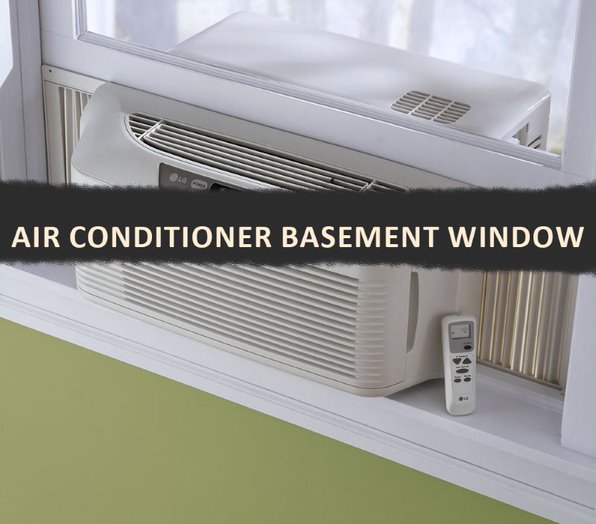You can get a bit of airflow through a window in a basement. However, if you double it down as an AC unit, you’ll be able to maximize its performance. In this article, we will examine factors that will help you choose the best air conditioner basement window.
Basement Size
The most important factor to consider is the size of the air conditioner. The cooling capacity of a given AC unit can be measured in a couple of different ways. These measurements are all taken in your basement. Calculate the BTU (British Thermal Units) of the air conditioner by multiplying the length by the width
Humidity in the basement
While the BTU is extremely important, basements are notoriously difficult to keep dry. Be sure to pick an AC with dehumidification and ventilation capabilities when choosing your AC. Humidity elimination has two main objectives:
- Keep mold and pests at bay.
- Make cooling easier.
Installing Windows correctly
Window sizes can be oddly small and placed in difficult-to-reach places in basements. As a result, you need to consider the size of your unit in relation to the window frame. Aside from that, is the opening a good location for an AC if it is in a strange place? A second question you should ask is whether the window is easy to install. Window units can be installed by yourself, but a basement window will require professional assistance. Take into account your window’s surroundings as well. Are you going to be able to vent your AC properly?
Budget family
Prices for window units can range from a few hundred to a few thousand dollars depending on features and BTUs. You can probably get by with a cheap, small model as long as the window is easily accessible. It’s probably better to get one that has a remote control if you have to stretch to make your way to the airflow louvers or to turn a knob.
Mini Split Air Conditioner with Multi-Zones for a Room Without Windows
As a result of the poor air quality in basements, dust mites can become a problem. The excessive amount of air humidity in your place can cause structural damage to your location. A basement air conditioner is used to keep the room humid and eliminate foul odors. Due to high humidity, it is possible to prevent the growth of fungus. As a result, dehumidifiers keep the same indoor air, which can contain microbes and infection-causing particles. When comparing an air conditioner and a dehumidifier, you will find that an air conditioner uses heating and cooling coils to dry the air in the room. In contrast, a dehumidifier uses excellent waves to do the job.
If you want to cool, heat, dry out the basement and make it cost-effective, you need a basement window unit. The installation process should be straightforward. You will need a separate heating system in the winter if you install a window air conditioner.
Additionally, installing ductless mini-split systems is much simpler than installing other air conditioning systems. For instance, the pipe only needs to pass through a three-inch (8-centimeter [cm]) opening in the wall to connect the outdoor and inside units. Additionally, most manufacturers of this kind of system offer a range of connecting conduit lengths
Read More: What Is Float Therapy? How Does It Work And Benefits Of Float Therapy
Portable vs. window air conditioners
West Coasters are experiencing record-breaking heat as summer arrives. Now is the time to consider how to cool your home if you do not have an AC unit. The most common cooling system is the central air. For others, they must use another type of AC unit. Two types of air conditioners are most popular: window air conditioners and portable air conditioners. Purchasing a new house requires you to consider your budget, the size of the house, and your ability to install a unit.
So we can determine which is better for you, let’s look at the key differences. Homeowners with multiple rooms in their house can use portable units. Keeping the room cool can be accomplished by moving the team around. Portable air conditioners are priced differently. The brand you select, the rating, and the square footage will all influence the cost. A portable air conditioner for a small room costs between $300 and $400. For the duplicate square footage, window air conditioners range from $150 to over $550. Window air conditioners are more expensive than portable units. The window air conditioners need to be installed and maintained in the exact location.
Cooling Solutions in the Basement:
- Dehumidifier. Whenever an air conditioner cools a space, the humidity levels are naturally managed. A separate dehumidifier could still be helpful to get rid of even more moisture. Your AC will be able to run more efficiently if humidity is effectively managed. Basements are naturally damp, leading to mold and mildew growth if water is not controlled.
- Install a mini-split ductless system. Window units can be difficult or impossible to install in basements. For cooling a single room, ductless mini-split air conditioners are ideal since they require only a tiny hole in the wall for the pipe to connect to the outside unit. Directly mounted on the wall, they quietly and effectively cool the room.
- They can be used in conjunction with the central system. If you want to cool your basement, you can extend your HVAC system. You must make sure that your current system can handle the extra square footage that your basement will add. The contractor who installs your AC system can determine if your existing unit can adequately cool the new space if you are uncertain. Your system may need to be replaced if it is older or undersized (if it is already over eight years old, this may be the best option). You can still use the ductless mini-split system if it is relatively new and does not need to be replaced, but it cannot handle the extra load.









